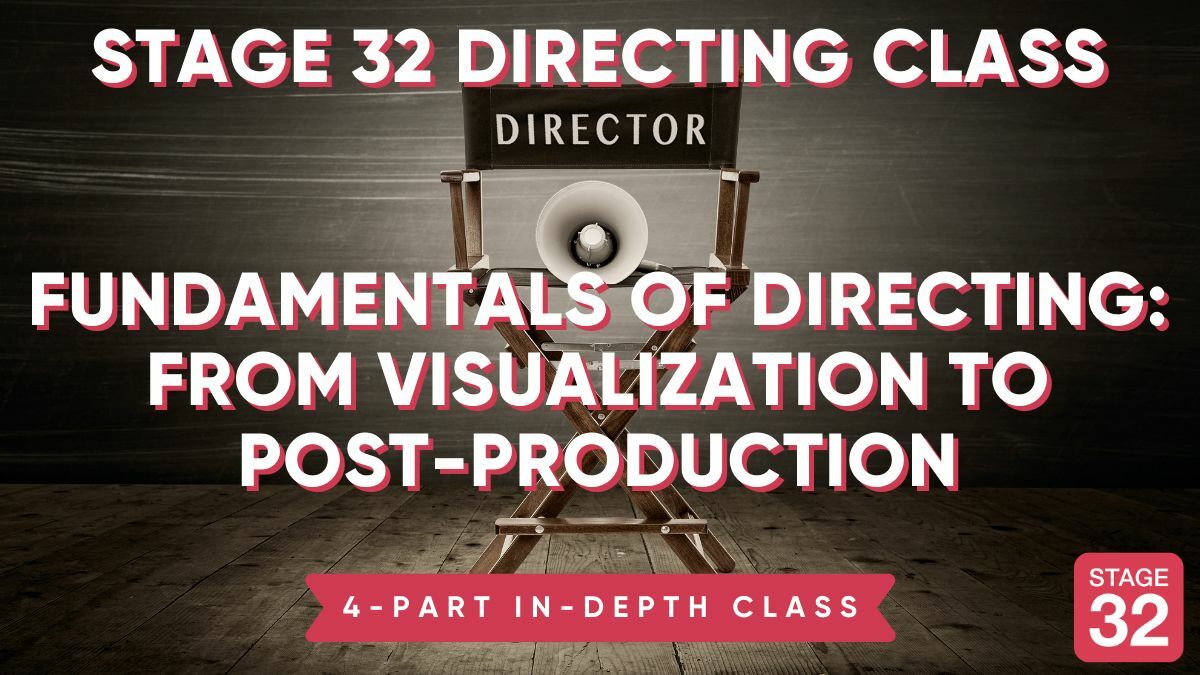So...
I'm sure some of you are curious as to how my experience went.
It was... interesting, to say the least, and not what I expected at all. But, that's okay.
I am a bit discouraged, I won't lie, even defeated. However, having taken the first REAL step into this industry is quite eye-opening for me.
Here's what I've learned:
- Pitch your STORY... not your idea.
- Be brief and concise.
- Be confident in your abilities.
- Tell the producer the "WHY" behind your story... Not the "how", not the endgoal... Why is it personal to you?
I'm not giving up on this one though. Experience is a harsh teacher, I've learned many times, but at least, I've learned something. :)
If you have any advice to give this newbie screenwriter for a better pitch, I'm all ears.



2 people like this
Hey @Marcel! Thanks for sharing! I'm sorry you were discouraged and I do understand why. If you shoot me an email at success@stage32.com (if you haven't already), I can send you the sample pitch we have and also some links to resources here on Stage 32. And if you're in the Writers' Room or considering joining, for sure check out the Thursday night Pitch Practice and the monthly Pitch Tank session
1 person likes this
Hey Emily!
Thanks for reaching out. I will email you for sure. I'm curious to see your pitch template. I need to see what I can focus on for the next one.
2 people like this
Don't feel discouraged Marcel ! Pitching is not my thing but I learn every time I do it and there's a lot of opportunities on Stage 32 to practice - you've got this.
2 people like this
Hi Marcel, trust me, you‘ll get better with time. Once you figured out what works it‘s only a matter of finding the right exec who‘ll request your script and the you‘ll be even one step further on your screenwriting journey!
2 people like this
I was at Bryan McGill pitch workshop and this guy had us all seated down in a circle on a floor in a conference room...then he said "close your eyes and imagine a camp fire"...and then he said "lemme tell you a story..." It's all about leaving an impression...options are limitless, but it's your job to figure it out...
6 people like this
Well done for taking your first step! Thats sometimes the hardest thing to do. When describing your story, don't just list the events but think of it as telling the story of your characters. This way you will be delivering the the plot of your project as well as telling the executive about the characters at the same time.Since audiences connect with characters rather than events, this makes framing your pitch like this a much better demonstration of your project and why audiences will want to see it.
2 people like this
Great you share your thoughts, Marcel ánd the difficulties. Inspiring and helpful for everyone.
2 people like this
Thank you for sharing. I have not done a live pitch before. This helps.
1 person likes this
Thanks for sharing the tips, Marcel Nault Jr. They'll help when I do live pitches on here. I'm glad to hear you're not giving up. Hope you nail the next live pitch!
2 people like this
Maurice, I'm already working on a draft as we speak. So, thanks for the encouragement, man.
2 people like this
You also have to remember it's not always your work that get's the pass. Sometimes the producer just doesn't get it.
3 people like this
Great post… to me, live pitches are like job interviews on steroids with an added shot of meth… you have to provide a lot of pertinent information in a short period of time. Thank you for sharing what you have learned!! You got this!!!
1 person likes this
You're welcome, Marcel Nault Jr.
4 people like this
I'll echo what others have stated here. There's no reason to be discouraged. You stood in the ring and came away with more knowledge and confidence than when you entered. You can't ask for more than that.
I'll add, the fact that you are open minded and receptive to kickback gives you an advantage over many. For many, being open to feedback and criticism takes a massive amount of time. The earlier you develop this skill, the bigger the advantage you give yourself not only from a craft point of view, but in the marketplace as well.
2 people like this
Read, write, read... talk, talk here on the platform, interact. I see you already have something to write. Your field gains territories.
MARCEL NAULT
3 people like this
Richard, 100%. You have to be open to criticism, as long as it's constructive and can help you improve in the long run.
3 people like this
Agreed, Marcel. And if you're listening to the "right" voices.
4 people like this
Your thoughts on the experience are so helpful. Now you know what you need to do to slay the next one! Thanks for sharing, Marcel.